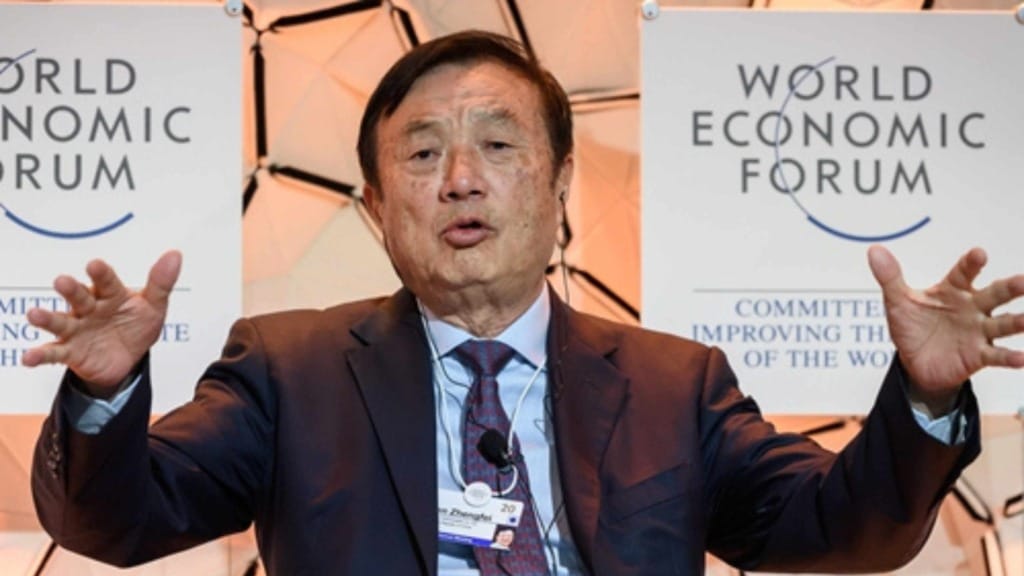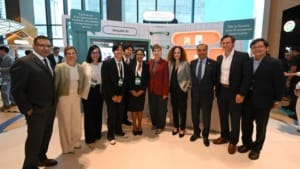Huawei founder Ren Zhengfei seeks fresh talent at Sichuan University
Huawei founder Ren Zhengfei visits Sichuan University to strengthen research collaboration and seek fresh talent amid US sanctions.

You might have noticed a surge in Huawei’s activities recently. On June 5, Ren Zhengfei, the founder and CEO of Huawei Technologies, made a rare public appearance at Sichuan University. This visit was part of Huawei’s strategy to boost basic research and attract new talent, especially in light of ongoing US sanctions.
Table Of Content
During his visit to Sichuan University, one of China’s oldest and most respected institutions, Ren emphasised the importance of collaboration with universities. He stated that Huawei, which we have heavily sanctioned, is working closely with academic institutions worldwide to strengthen its theoretical research capabilities. According to a blog post by the university, Ren highlighted that talent is crucial for technological innovation and expressed Huawei’s intention to deepen its cooperation with the university.
At 79, Ren is still actively involved in steering Huawei towards new technological breakthroughs. He mentioned that the primary goal of these collaborations is to address key issues facing the industry and make significant technological advancements.

Focus on talent amidst challenges
Ren’s visit to Sichuan University is part of Huawei’s broader effort to prioritise talent acquisition. Since Huawei was blacklisted by Washington in 2019, the company has faced numerous challenges in maintaining its technological edge. However, Ren remains undeterred, focusing on securing top talent to drive innovation.
Last July, Ren clarified that Huawei values talent over financial resources, famously stating that the company will “save talent, not US dollars.” This philosophy led to the creation of the “Top Minds” recruitment programme, later renamed “Genius Youth.” This initiative targets individuals with outstanding research achievements or those who have produced impactful results, aiming to attract the brightest minds to Huawei.
Ongoing university engagements
Ren’s visit to Sichuan University is not an isolated event. He has actively engaged with various universities to scout for talent and build partnerships. In July 2020, Ren visited four universities in three days, including renowned institutions like Fudan University and Shanghai Jiao Tong University. In September, he visited Tsinghua University, Peking University in Beijing, and the Chinese Academy of Sciences.
During these visits, Ren stressed the importance of “pure research,” which he believes should not be solely driven by applied science. He argued that this approach is essential for achieving groundbreaking advancements and ensuring long-term technological progress. In recent years, Chinese President Xi Jinping has also called for a greater focus on basic research.
Huawei’s recent achievements
Despite the challenges posed by US sanctions, Huawei has made significant strides in recent years. Last year, Huawei revived its once-dominant smartphone business in China with a new chip design that appeared to bypass US efforts to limit access to advanced semiconductor technology. The Mate 60 series, launched in August, was the first 5G smartphone Huawei had shipped in three years. It featured the Kirin 9000 chip, produced by Semiconductor Manufacturing International Corporation (SMIC).
The launch of the Mate 60 series was celebrated in China, boosting Huawei’s sales and helping it regain its position among the top five smartphone brands in the country. This year, Huawei launched the Pura 70 series, which also features a 7-nanometer chip.
In addition to its smartphone business, Huawei addresses the need for artificial intelligence (AI) chips in China. With US export controls limiting access to Nvidia’s most advanced graphics processing units, Huawei’s latest Ascend 910B AI chip has shown promising results. Some tests found it to be 20% more efficient than the Nvidia A100 when training large language models.
Huawei’s proactive engagement with universities and its focus on talent and research underscore its commitment to innovation and resilience. By investing in academic collaborations and prioritising talent, Huawei aims to overcome current challenges and secure its position as a leader in the technology sector.
















